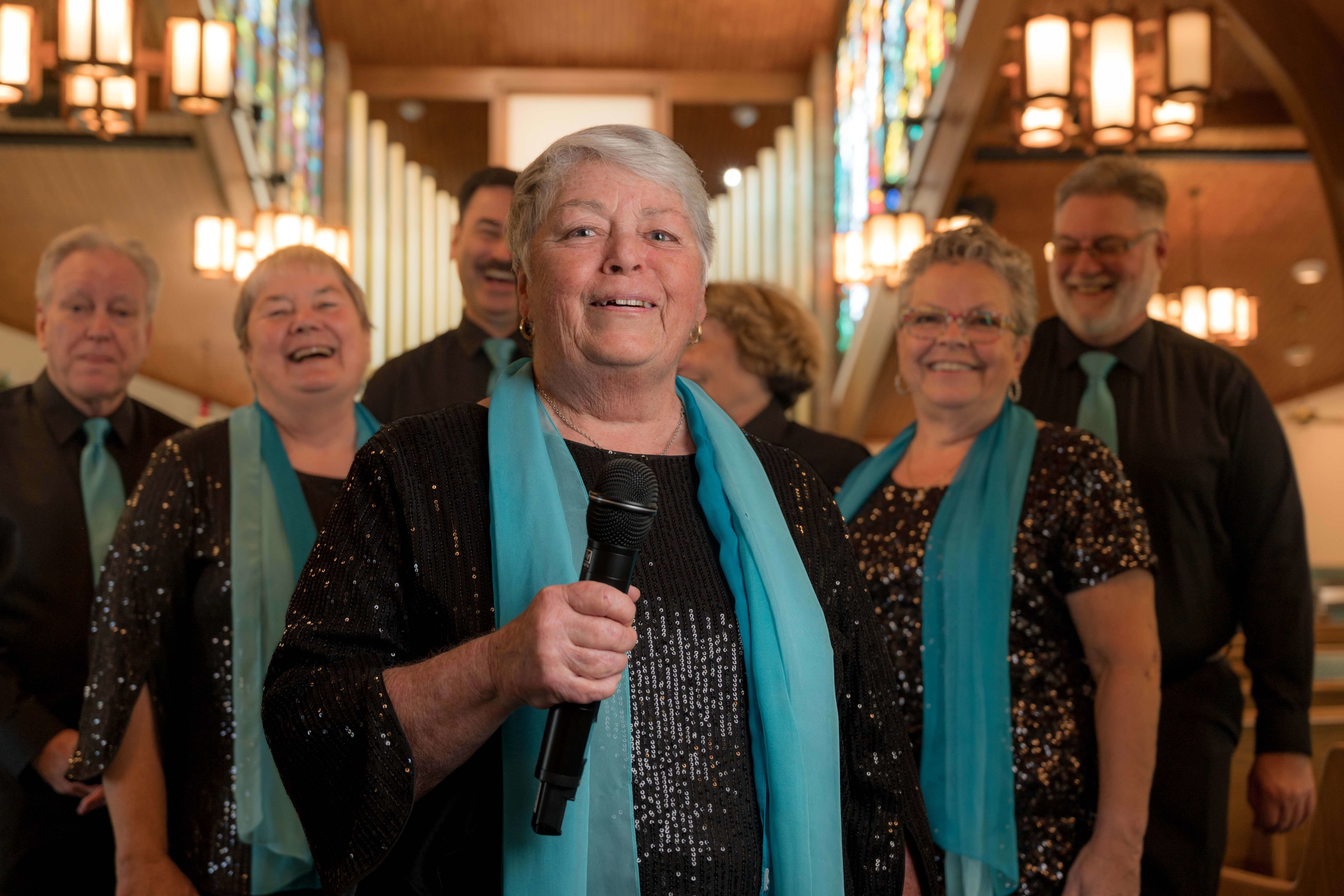Meet Our 2017 Unity Award Winners
Our 2017 Unity Award winners see strengths in differences. They are advocates for the physically and mentally disabled, the poor, the mentally ill and those from different cultures and religious backgrounds. Armed with mission statements, strategic plans, fund-raising skills and gritty, hands-on efforts, they have created college scholarship programs for Latinos, hired the disabled, launched programs to keep the mentally ill out of jail, provided medical care for the uninsured and extended a welcoming hand to people with different views and abilities. They provide compelling evidence that the more we bring everyone under the same tent, the more productive and innovative our workplaces will be and the higher the quality of life we’ll enjoy in Sarasota and Manatee.
Arts Winners
Wilmian Hernandez and Ariel Serrano
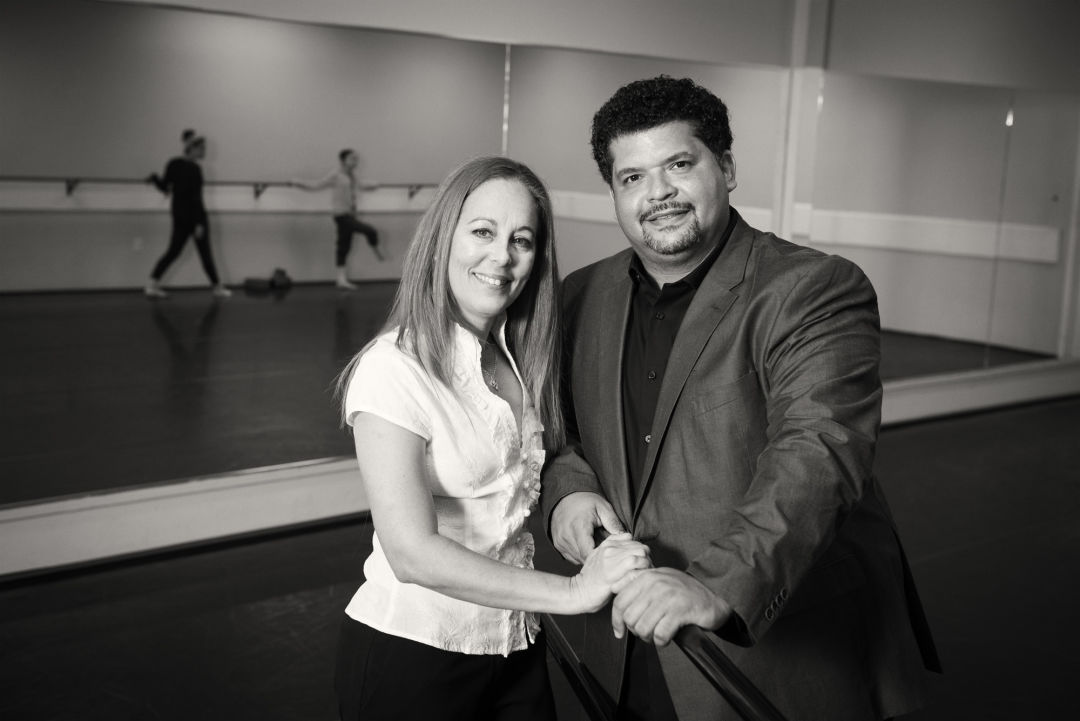
Husband-and-wife dancers who defected from Cuba in 1993, Ariel Serrano and Wilmian Hernandez brought Cuban-style athletic leaps and romantic lifts to the Sarasota Ballet. But Serrano’s back ailments and Hernandez’s pregnancies downshifted their performing careers. Hernandez began teaching dance, and Serrano worked as a handyman, saving up to create the Sarasota Cuban Ballet School (SCBS), which opened in 2012.
Today SCBS welcomes a global student body. The school has an ongoing student/faculty collaboration with the Cuban National Ballet School, putting Sarasota at the center of a worldwide dance network. Its summer program attracts rising national and international stars. The students’ multicultural backgrounds, coupled with success in competitions, attract other diverse applicants. “They say, ‘That’s like the United Nations. Let’s go there,’” Serrano says. Alums have joined companies around the globe.
Raised by a single mom in Cuba, Serrano is also committed to economic diversity. Ballet is as expensive as it is ethereal. Students can burn through $120 in shoes in a week. “Sometimes the parents don’t have the means,” he says. “How can you say no to a kid who has that kind of talent, and you can change their life?”
So Serrano and Hernandez converted SCBS into a nonprofit that can accept donations, seek grants and award scholarships. Thanks to a Community Foundation of Sarasota County grant, this year SCBS is introducing dance to four Sarasota Title I schools. “We’re hoping that we can create excitement in these kids to be part of something as beautiful as ballet,” he says.
Nonprofit Winner
Islamic Society of Sarasota Bradenton
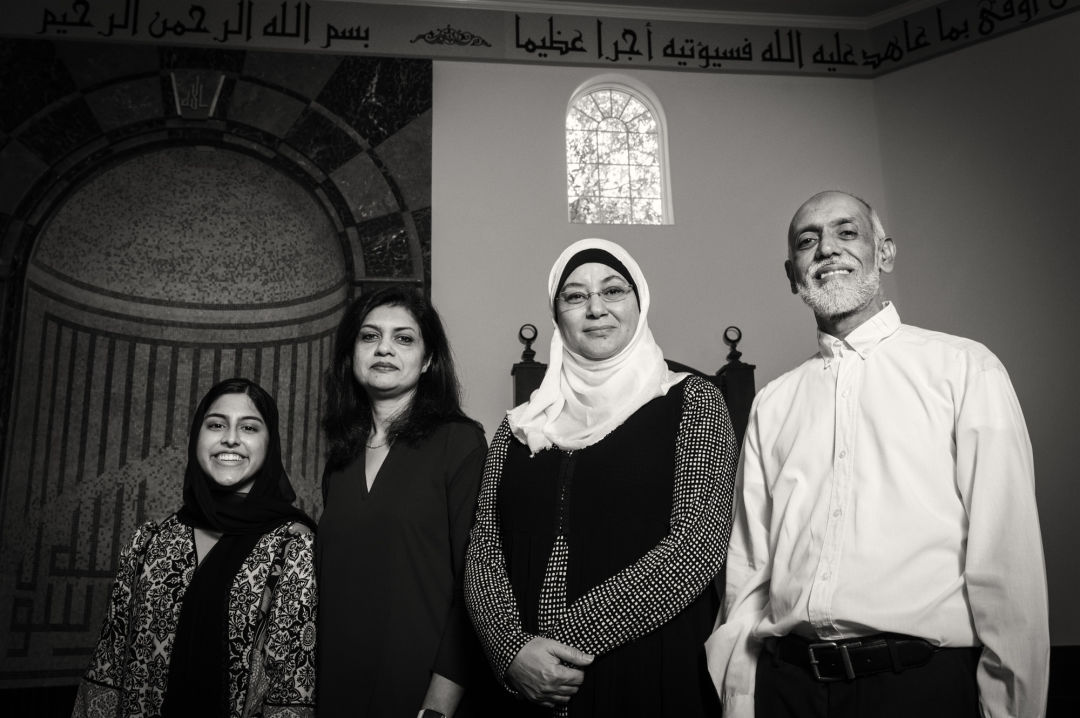
Founded in 1993, the nonprofit Islamic Society of Sarasota Bradenton (ISSB), with its impressive mosque on Lockwood Ridge Road, is the center of life for many Muslims in our region, and the only mosque within a 50-mile radius. With 200 families as members (and hundreds more who attend during holidays), it is a diverse community of Arab and non-Arab, many nationalities and American converts of all professions.
“There are so many misconceptions,” says Shiraz Hassan, a FEMA-contracted home inspector and the ISSB chair. “People of faith have similar values. A belief in one God, in doing good. Our differences are so minor.”
For years, the ISSB has visited churches, synagogues, theaters and retirement homes for educational and interfaith meetings. As a center for All Faiths Food Bank, the society holds a monthly food and clothing giveaway at the mosque and is part of the national Family Promise network to host homeless families. And the doors are thrown wide open for annual food festivals and arts and crafts fairs that attract hundreds of people who want to know more about their Muslim neighbors.
Last fall, the ISSB, with member Dr. Shahnaz Ahmed, launched the Universal Crescent Clinic, a health care clinic for the uninsured, which sees people every Saturday. All are welcome. “Most of our clients so far are white Americans between 25-45. They’re between jobs or have low-paying jobs,” says Ruta Jouniari, who is the clinic’s chair.
“Muslims are not the ‘other,’” says Hassan. “We want to build bridges.”
Medical Winner
Dr. Richard Conard
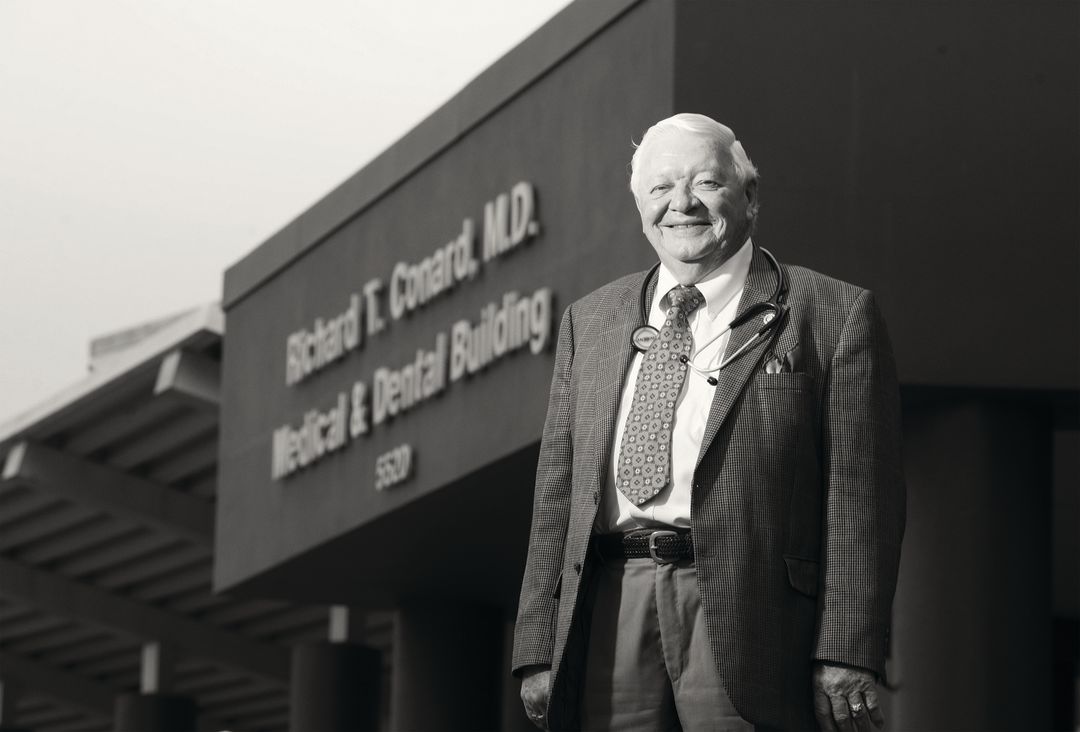
In 2014, a friend invited Dr. Richard Conard, 78, a founding physician of Blake Medical Center and multiple retirement homes in Florida, to see a Remote Area Medical Clinic (RAM) in Tennessee. A pop-up clinic, RAM was created to help people with no access to medical care in the developing world. Now it’s treating the medically needy in the U.S. Conard was shocked and humbled by what he saw.
He knew the same need existed in Manatee County, so he spent the next few months pulling together $80,000 from individuals, foundations and businesses (“and not a thin dime from government,” he says) and recruiting health care providers. At Manatee County’s first RAM Clinic, in November 2015, 900 volunteer medical professionals and 300 volunteers saw 1,868 patients in one day.
The November 2016 event expanded to three days, and included a half day of veterinary services. Now Conard has found commitments for half the $1.5 million necessary to expand RAM around the state.
Conard also is lobbying the Florida legislature to allow medical professionals licensed in other states to come to Florida and volunteer for this program. “It is impossible to conduct the event with only Florida-licensed medical professionals,” he says.
Conard views his work as one way of fulfilling the mandate of the Affordable Care Act of 2010 that gives every American the right to basic health care. “If a community decides they’re going to be proactive, they can come together and achieve that,” he says.
Legal Winner
Erika Quartermaine
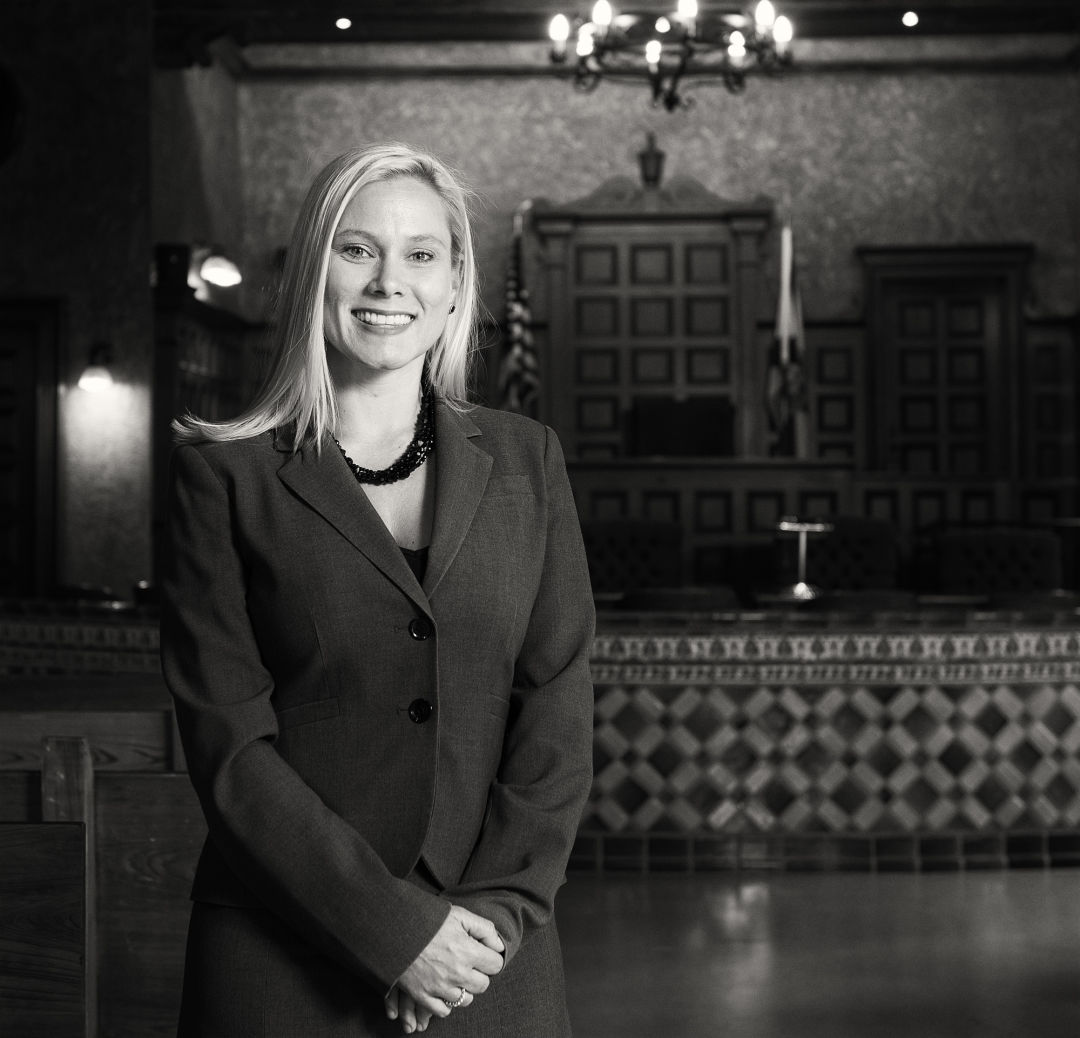
As a prosecutor in Sarasota County in 2009, Sarasota County Court Judge Erika Quartermaine noticed certain people she could count on seeing over and over again—most of them homeless, who were arrested for lodging and open container complaints. Many of these repeat offenders had mental conditions and ended up in jail, defendants like Laura Mallia, a local woman diagnosed with schizophrenia and bipolar disorder, whose 65 arrests have cost Sarasota taxpayers $142,664.
Then, in 2013, shortly after she became a judge, Quartermaine was struck by the absurdity of a homeless, mentally ill man who was sentenced to 90 days for pulling a fire alarm. “Where can we put them?” she remembers thinking. “When they lie in the streets in urine for days. That’s someone’s child. This is not an unsolvable problem. I have the tools of the criminal justice system.”
In March 2014, Quartermaine, 38, gathered a group of like-minded attorneys, law enforcement officers and civic leaders and spearheaded a campaign that raised $2.4 million for a groundbreaking program based on a successful Miami initiative that will divert the mentally ill from jail and toward health care and self-sustenance over the next three years. The partnering health agency, Centerstone, will organize triage, short-term housing, health care and, if and when patients are ready, long-term housing. The group raised half the necessary funds from local government and philanthropy; the rest came through a grant co-written by Centerstone.
Organizing the Comprehensive Treatment Court was practically a second job for Quartermaine and a crash course in grant writing and government request processes. The effort has been worth it.
“How can we call ourselves civilized and not protect those most vulnerable?” says Quartermaine, who says the mentally ill spend as much as two-thirds of their life in jail. “Jail is not a mental health facility.”
Education Winner
Kelly Kirschner
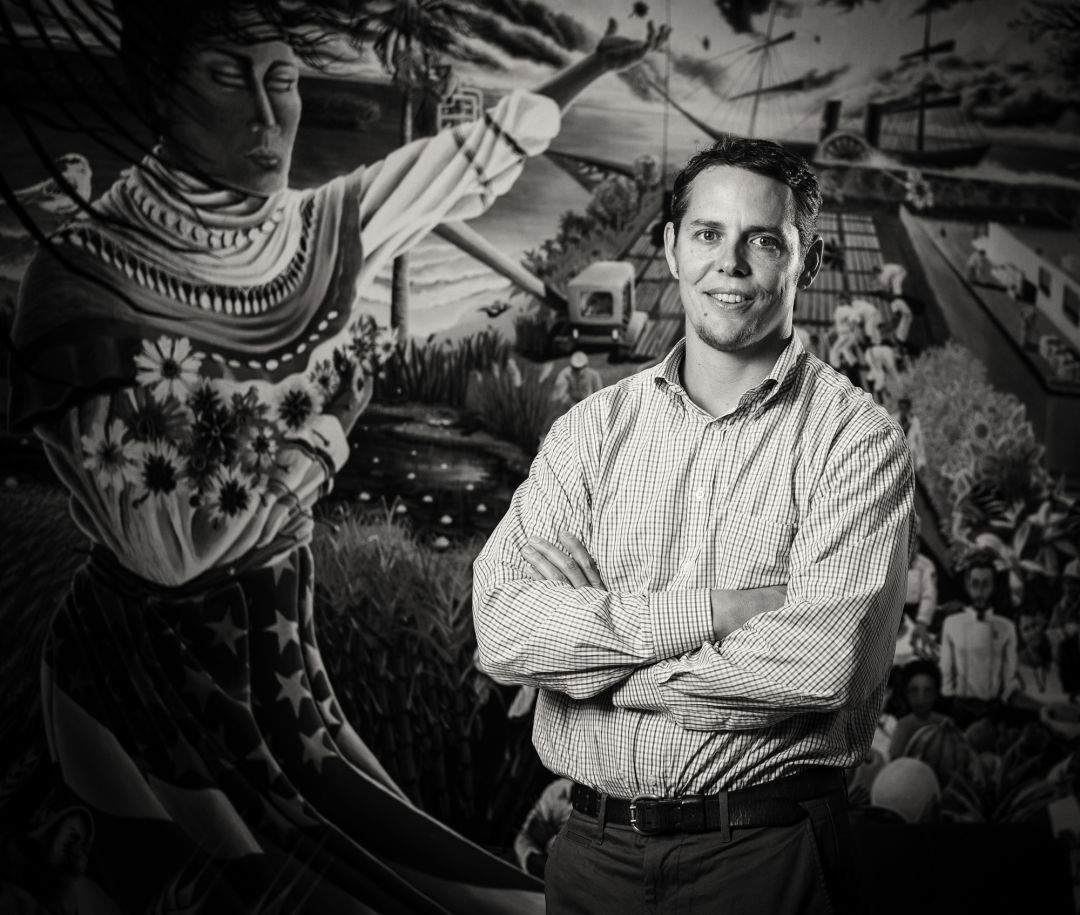
Kelly Kirschner, dean of special programs at Eckerd College, sees education as the ticket to self-improvement, productivity and democracy. As a founder and now board chairman of UnidosNow, a Sarasota organization that seeks to empower and integrate Latinos in Southwest Florida into the larger community, Kirschner has been instrumental in developing UnidosNow’s college prep program, Future Leaders Academy.
Latinos, he says, comprise 36 percent of all kindergartners in Sarasota and about 20 percent of the city. Their success is our success.
“Through education, empowerment will grow,” he says. “[Otherwise], these children will be a permanent underclass.”
More than 400 Latino students have completed the rigorous program at Future Leaders Academy. They’ve won hefty scholarships and admission into selective colleges. The program includes summer sessions, year-round clubs and a local college access network staffed by role models such as Hector Tejeda, a Guatemalan immigrant who came here as a baby with his 16-year-old mother, went on to complete a Harvard M.B.A., advised students at Wharton, and now spends his retirement helping UnidosNow students apply for college.
The Future Leaders Academy is expanding to middle schools, and the newest component, in partnership with Manatee Technical College, is an FM radio station with 24-hour programming in Spanish about music, opportunities, health, community issues and education.
Education breaks the cycle of poverty, Kirschner says. “We want young Latino youth reflected in all parts of Sarasota society from medicine to the courtroom,” he says.
Financial Winner
Sherod Halliburton
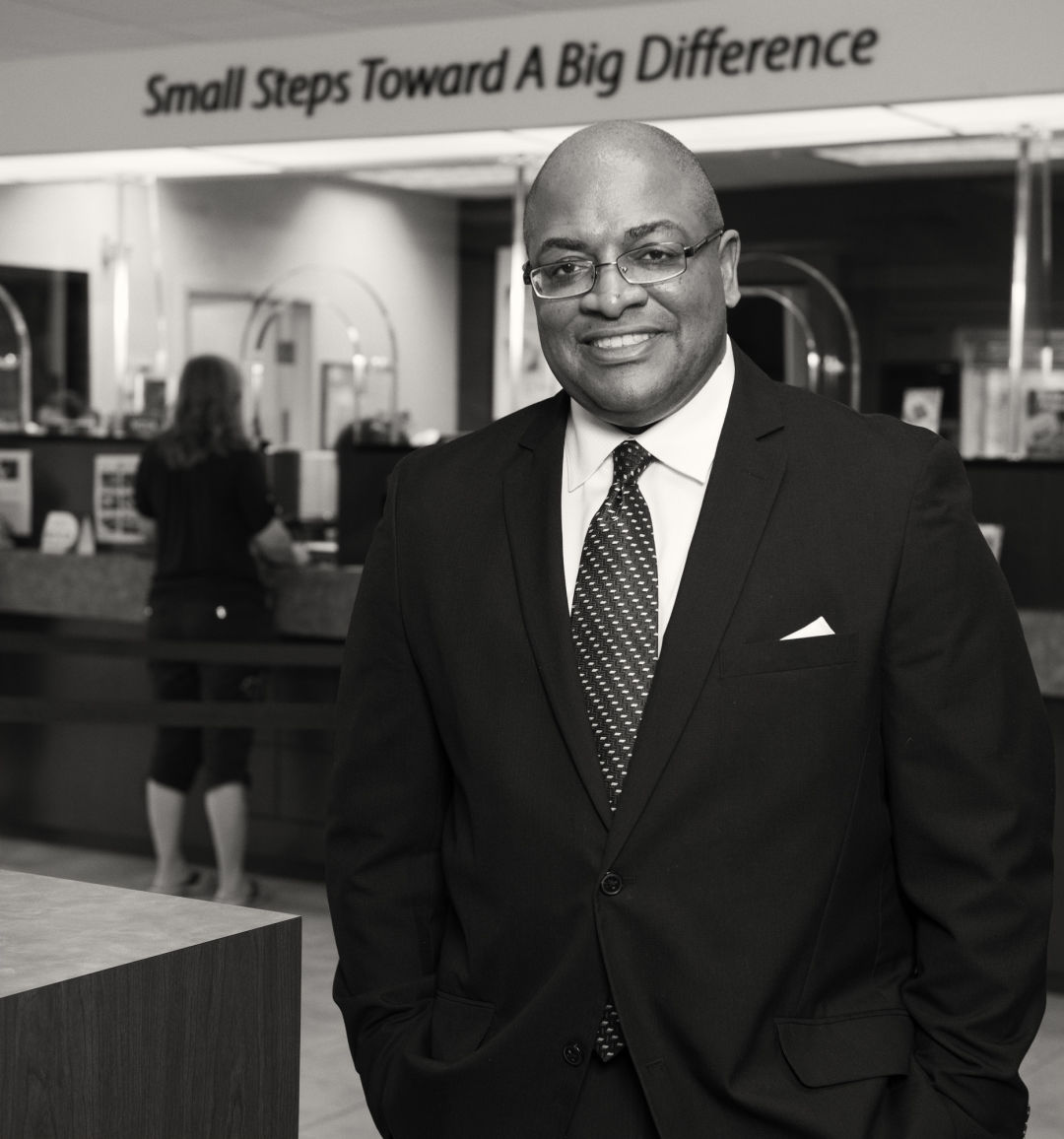
After hopscotching from telecom sales to entrepreneurship to community redevelopment, Sherod Halliburton took the reins of Manatee Community Federal Credit Union in 2013 without having worked a day in a financial institution. At the time, the credit union had $24 million in assets. It also had a 22 percent drop in loans over the previous year and a dwindling membership.
Today, MCFCU’s assets stand at $41 million with a 55 percent loan growth over the past 12 months (in the top 99th percentile in the nation for credit unions of that asset size) and membership growth of 20 percent.
The turnaround was strategic. Halliburton focused on members, often those with the least means and the most need, who were not being served by other financial institutions. Then he created programs and technology to serve them. He conceptualized an app that uses budgeting tools and podcasts to teach clients how to save, and he’s hired an increasingly diverse workforce with bilingual representatives and a Spanish portion on the website. “We specifically went after that [Hispanic] demographic,” he says. “It was an underserved market.”
A program called Reliable Ride helped about 100 clients buy low-cost, low-interest vehicles last year, and onsite car sales allow customers to shop at the credit union and purchase decent cars with real warranties. Halliburton also teaches members about how to save, refinance, access lines of credit and invest wisely. “We are doing well by doing good,” says Halliburton. “We put people in the best possible place to be successful. Not only is it socially responsible, it is good business.”
He is so familiar in the community (into which he moved partly to help care for his elderly mother-in- law) that it isn’t unusual for clients to stop by his house on his day off to tell him their debit card isn’t working. “I’m truly the community guy,” he says. —Anu Varma
Business Winner
Bealls, Inc.
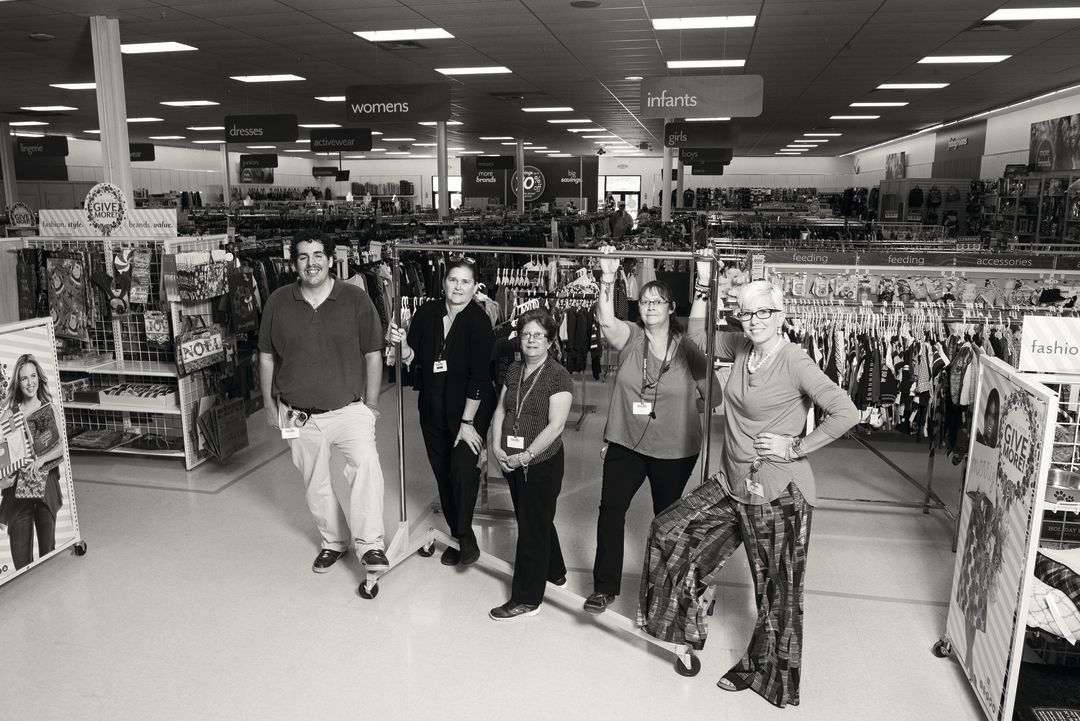
From its founding 101 years ago in downtown Bradenton as the V (Five) Dollar Limit Store, Bealls, Inc. has burgeoned into more than 530 Bealls Department Stores, Bealls Outlets, Burkes Outlets and Bunulu stores in 16 states, with more than 10,000 employees.
Last fall, Bealls, still headquartered in Manatee County, was honored by the Florida Agency for Persons with Disabilities for its longstanding employment of people with special needs.
The company partners with nonprofit organizations; United Cerebral Palsy Sarasota clients, for example, sort thousands of hangers for its distribution centers, and in St. Augustine, the company hired workers from the Florida School for the Deaf and Blind.
Individual store managers, too, have the authority to hire people with disabilities. Michael Calladino, for example, is a 28-year-old with autism who recently got his very first job, working in the stockroom at the Bealls Outlet in Ellenton. “I asked the store manager if she’d be interested in hiring him, and she said, ‘Absolutely, I’d love to give him a chance,” says his job coach, Phillip Book of Red Lion Jobs, a contractor with the Florida Department of Vocational Rehabilitation. “It turns out she has a degree in child education and has had experience working with children with autism. She went above and beyond the call by training her entire staff about the things he can and cannot do. He’s working six hours a week, making above minimum wage, and doing fantastic.”
“We love doing this,” says Bill Webster, director of public relations and government relations. “Education has been a major interest of the Bealls family forever, and it really dovetails with their interest.”
Plus, “Without exception it inspires our employees,” says Webster. “The attitudes of these employees are stellar. This is not a sacrifice on our part; these are good employees.” —Ilene Denton
Alumni Award
Brad Jones
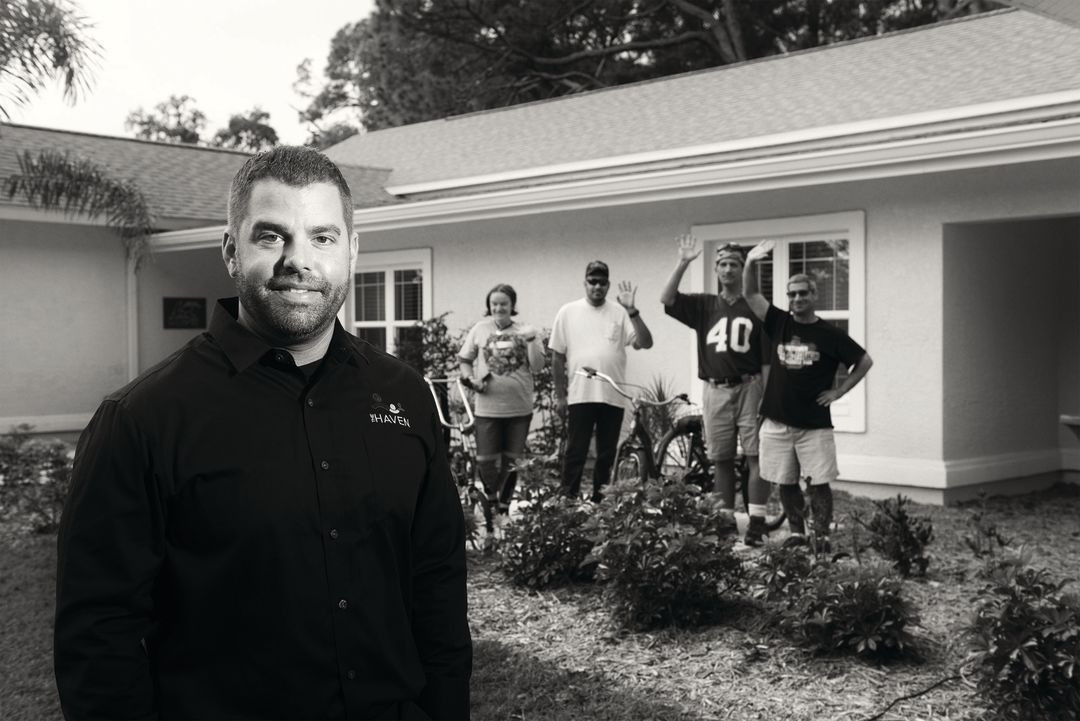
Our 2014 Nonprofit Unity winner, Brad Jones, then the adult services director at Community Haven for Adults and Children with Disabilities, is now president and CEO of the nonprofit, which has been renamed The Haven. Jones has seen it grow from serving 130 clients to 700 clients every day.
With skills training programs, a high school, preschool and residential living facilities, The Haven is one the few Florida (and U.S.) organizations for the disabled with comprehensive, around-the-clock programs, including partnering with local businesses for employment.
This year, a fifth group home for eight disabled residents opened on The Haven’s 32 acres, growing the number of residents to 40. Another $1.2 million group home for the wheelchair bound is on its way. A brand-new, $1.3 million Haven Industries building, where adult day training takes place, will give 100 more people the opportunity to earn a paycheck.
“When they get their first paycheck, it changes their outlook on life,” Jones says. “They begin to think, ‘Maybe I can do that.’”
The demand for disabled services is growing, Jones adds. The disabled live longer because of medical advances, and their parents are retiring to Florida and bringing their adult children with them. At the same time, Florida ranks near the bottom in funding these services. “It’s a perfect storm,” he says. “This generation [of disabled] is the first generation of adult kids outliving their parents.”
Jones plans to expand the number of group homes, the school programs and add a senior residential program. “The potential of the disabled is huge,” he says. “It just needs to be tapped.” —Susan Burn



